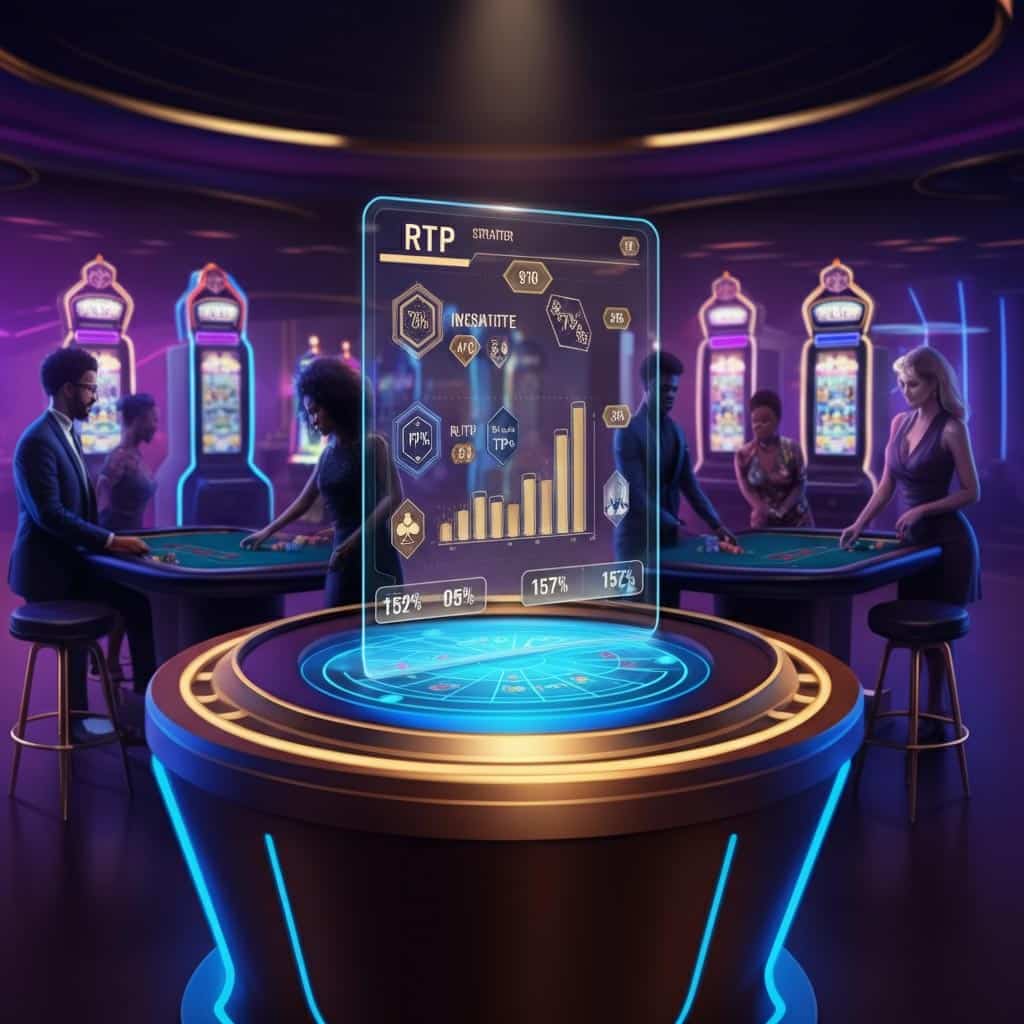
The gambling industry is no stranger to innovation. From online casinos to mobile betting apps, the sector has consistently adopted new technologies to enhance user experiences and stay competitive. However, one technology stands out as a potential game-changer for the industry: blockchain. Known for its decentralization, transparency, and security, blockchain technology is slowly but surely making its way into the world of gambling. But how exactly does it work, and what impact could it have on the future of this billion-dollar industry? This post dives into the potential of blockchain in gambling, exploring its benefits, challenges, and future prospects.
How Blockchain Works
To understand blockchain’s role in gambling, it’s essential to first grasp how the technology works.
At its core, blockchain is a decentralized, distributed ledger that records transactions across multiple computers. Instead of relying on a central authority, blockchain operates on a peer-to-peer network, ensuring that all transactions are transparent, immutable, and secure.
Every transaction is grouped into a “block,” which is then encrypted and added to a “chain” of previous blocks. This creates a tamper-proof record that can be accessed by all network participants. The beauty of blockchain lies in its transparency and fairness, making it an ideal solution for industries like gambling, where trust and security are paramount.
Key features of blockchain:
- Decentralization: Removes the need for a central authority or intermediary.
- Transparency: All transactions are visible to participants and cannot be altered.
- Security: Advanced cryptographic algorithms protect data from unauthorized access or manipulation.
With these features, blockchain has started to solve some of gambling’s longstanding pain points, such as lack of trust and opaque operations.
Benefits of Blockchain in Gambling
Blockchain technology offers a range of benefits that make it a natural fit for gambling applications. Below are the key advantages:
1. Transparency
One of the biggest concerns in gambling is the lack of trust between operators and players. Traditional casinos and online platforms often operate in a “black box,” where players have no way of verifying the fairness of games. Blockchain solves this problem by providing a transparent and auditable record of all transactions and game outcomes.
For instance, smart contracts (self-executing contracts with the terms of the agreement directly written into code) can be used to ensure that games are provably fair. Players can verify that the outcomes were generated randomly, without manipulation from the casino or third parties.
2. Enhanced Security
Gambling platforms deal with sensitive personal and financial information, making them a prime target for cyberattacks. Blockchain’s advanced encryption and decentralized structure make it far more secure than traditional systems. With no central server to hack, attackers would need to compromise the majority of nodes in the blockchain network simultaneously, an almost impossible task.
Blockchain can also eliminate issues like payment fraud. Cryptocurrencies, such as Bitcoin and Ethereum, allow fast, secure, and traceable transactions, reducing risks for both players and operators.
3. Fairness and Trust
Trust is a critical issue in the gambling industry. Players often worry about rigged games or delayed payouts. Blockchain ensures fairness through its immutable ledgers and publicly auditable smart contracts. Players can have peace of mind knowing that once a result is recorded on the blockchain, it cannot be tampered with.
4. Lower Transaction Costs
Traditional payment systems often come with high fees and long processing times, especially for international transactions. With blockchain, these issues are minimized. Cryptocurrencies can be transferred anywhere in the world almost instantly, and typically at a lower cost compared to banks or payment processors.
5. Accessibility
Blockchain-based gambling platforms can cater to a global audience, as cryptocurrency transactions eliminate the need to worry about currency conversion rates or regional banking restrictions. This accessibility also has the potential to tap into emerging markets.
Challenges of Blockchain in Gambling
While the benefits are clear, there are also significant challenges that must be addressed before blockchain can achieve widespread adoption in gambling.
1. Regulatory Concerns
The gambling industry is heavily regulated around the world, and blockchain introduces complexities for regulators. Cryptocurrencies, being anonymous and decentralized, raise questions about compliance with anti-money laundering (AML) and know-your-customer (KYC) regulations. Until clear regulatory frameworks are established, many gambling operators may be hesitant to fully adopt the technology.
2. Scalability
Blockchain networks, especially older ones like Bitcoin and Ethereum, struggle with scalability. High transaction volumes in gambling require a system capable of processing thousands of transactions per second. While newer blockchain solutions (like Solana and Polygon) aim to tackle this issue, scalability remains a critical challenge for mass adoption.
3. Lack of Awareness
Both players and operators may lack knowledge about blockchain technology and its benefits. Education and awareness campaigns are crucial to drive adoption. Additionally, creating user-friendly platforms is essential to ensure that blockchain-based gambling is accessible to all, not just tech-savvy users.
4. Volatility of Cryptocurrencies
Most blockchain-based gambling platforms rely on cryptocurrencies, which are notoriously volatile. This can make it difficult for players to predict the value of their bets or winnings. Stablecoins, which are pegged to fiat currencies, offer a potential solution, but adoption is still in its early stages.
5. Initial Setup Costs
Transitioning to blockchain-based systems requires a significant investment in technology and infrastructure. For smaller operators, these costs may be prohibitive, delaying adoption.
The Future of Blockchain in Gambling
Despite the challenges, the future of blockchain in gambling looks promising. The technology has the potential to transform the industry by addressing its biggest pain points and building trust with players.
Here’s what we can expect in the coming years:
- Greater Regulation: Governments and regulatory bodies are likely to develop clearer guidelines for blockchain and cryptocurrency use in gambling. This will provide a framework for operators to adopt the technology transparently and responsibly.
- Emerging Platforms: Startups and forward-thinking operators are already developing blockchain-based casinos and betting platforms. These platforms will pave the way for mainstream adoption as they refine user experiences and scalability.
- Integration with Traditional Systems: Rather than replacing traditional gambling platforms entirely, blockchain may be integrated into existing systems to provide enhanced transparency and efficiency.
For players, blockchain is a win-win. It enhances trust, provides greater security, and makes gaming more enjoyable overall. For operators, it offers an opportunity to innovate, attract a global audience, and differentiate themselves in a competitive market.
Unlocking the Potential of Blockchain in Gambling
Blockchain has the power to reshape the gambling industry by instilling greater transparency, security, and fairness. While challenges like regulation and scalability remain barriers to adoption, advancements in technology and policy are steadily paving the way forward.
Whether you’re a player searching for more trust in gaming or an operator looking to innovate, blockchain holds the key to unlocking new possibilities. By being an early supporter or adopter, you can position yourself at the forefront of this exciting revolution.
Are you ready to explore how blockchain can transform your gambling experience? Stay tuned to this space for more insights and updates as this technology continues to unfold.







